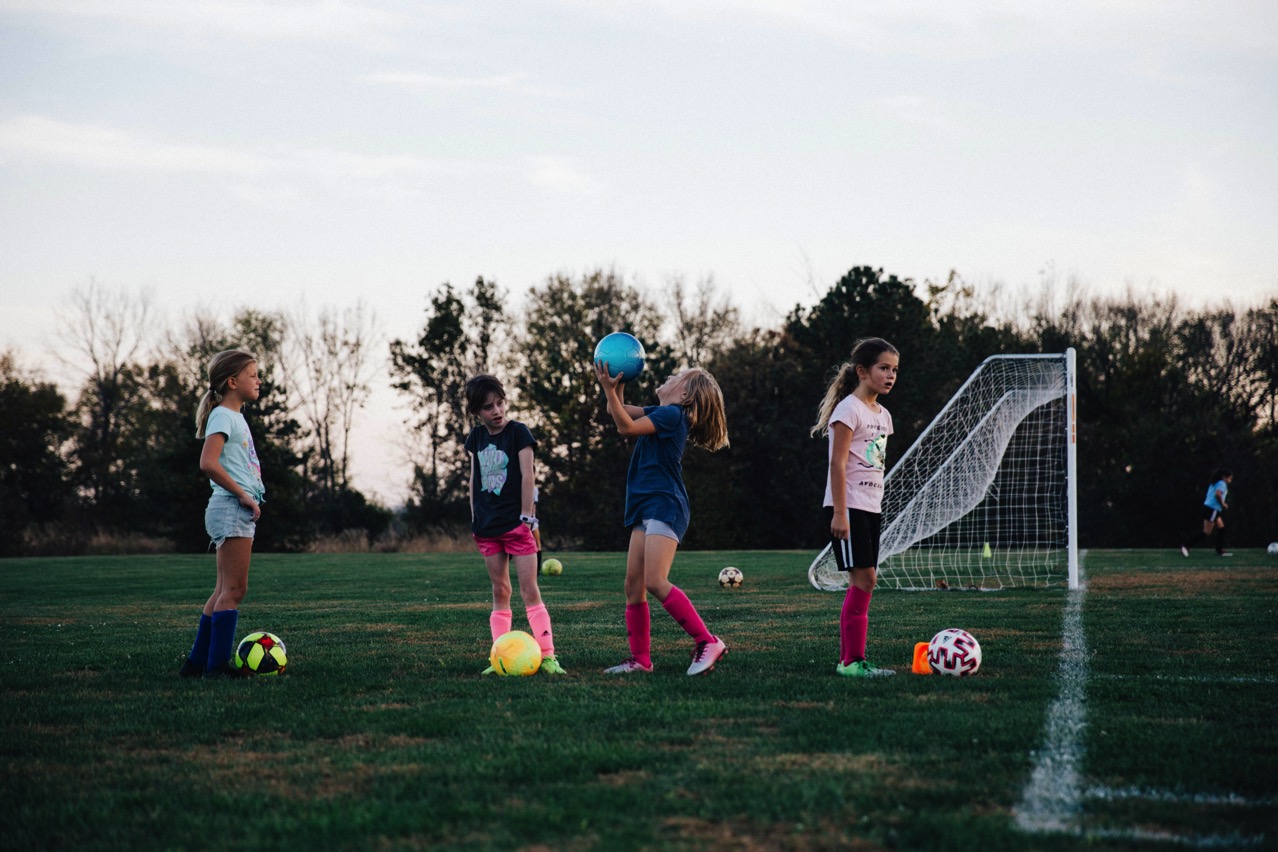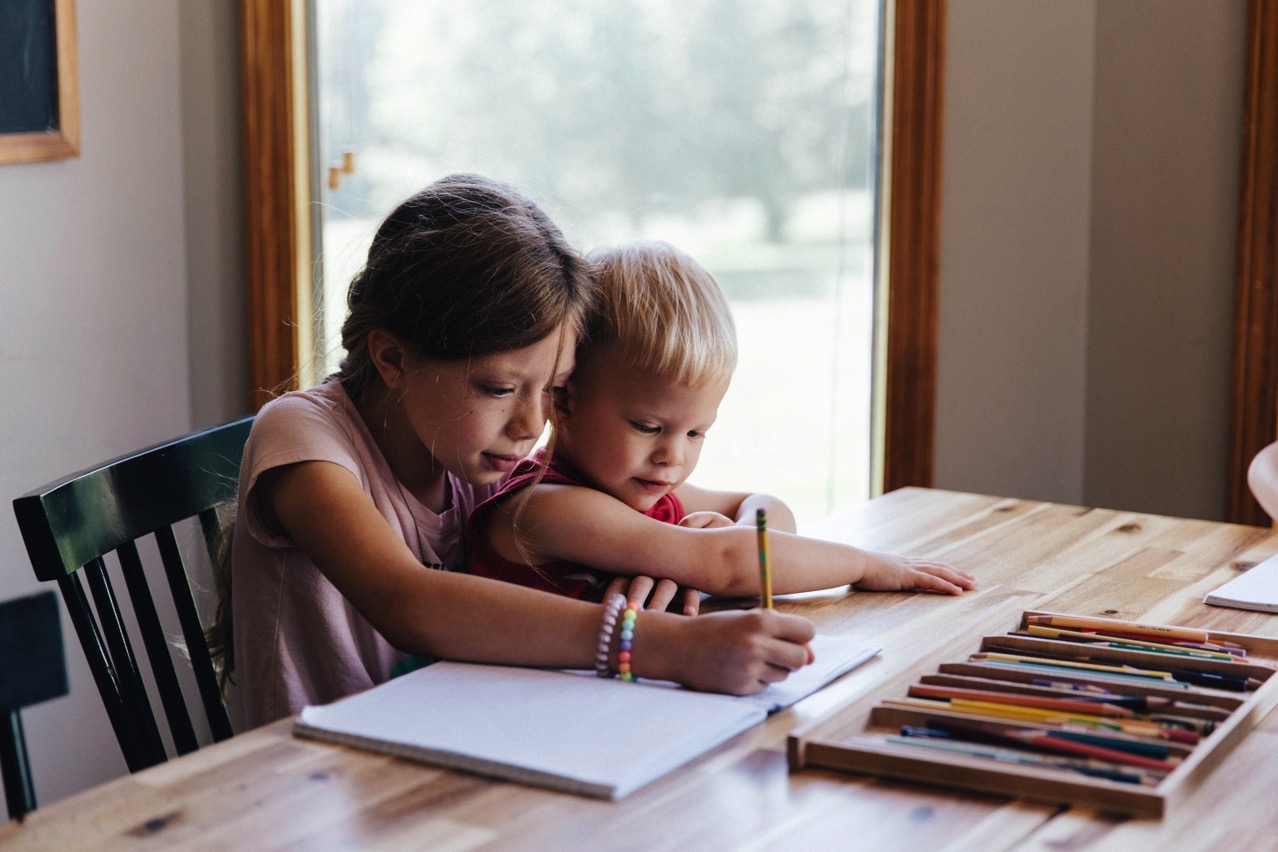Socialization…it’s kind of the “s” word among homeschoolers. In fact, it can sometimes seem like a tired old topic we wonder if anyone really asks about anymore.
Or so this is what I thought when I posted an eight-second Instagram reel about it. (Tra la la)
First of all, false.
It turns out that socialization is still a hot topic. Not because it’s a new one by any means, but because of the intense emotion it elicits from both sides of the discussion.
I learned a lot from the comment thread in that reel. The word “socialization” is loaded with different meanings for different people, especially when applied to homeschooling. People have very personal stories connected to this word.
As I tried my best to kindly and compassionately respond to comments, I took note of the different ways that people were using the word. Meanings would often be attached to dated or incorrect conceptions about homeschooling, which made it real loaded!
When we can address hot-button issues with validation and clarifying questions, it helps diffuse the big emotions. I wrote this post with that in mind. I want to give us language for better communication around this topic because it’s the one question almost every homeschooler will be asked.
A great place to start is by defining some of the ways that the word “socialization” is used.
My hope is that the next time someone asks “what about socialization?” you’ll be able to validate their concerns, bring clarity to the conversation, and answer the questions that lie at the heart of the issue!

1.) Interpersonal Skills
One of the hidden assumptions behind the socialization question is that adequate interpersonal skills can only be acquired in a full-time, conventional classroom. The truth is, research simply does not support this. Interpersonal skills like manners, self-awareness, and conflict resolution are actually passed down from parents and other close caregivers. (The book The Well-Adjusted Child by Rachel Gathercole is a wealth of information on this!) Some studies show that social skills of homeschooled children are equal to,or in some aspects may be superior to conventionally schooled peers.
Here is one such study. Here is another.
Is this true for every homeschooled across the board? No, of course not. That’s called nuance. (You can see this in the research.)
As my husband often points out, weird parents turn out weird kids. In cases where families are dysfunctional or parents are unable to pass down those important interpersonal skills, the conventional classroom can be a wonderful environment for learning how to navigate socially.
But for healthy families, home can be too.
It also brings up a great question: are there ever conventionally schooled children who lack appropriate social skills? Or is that limited to homeschoolers only?
I don’t know about you, but we have never had a shortage of opportunities to work out conflict with peers–either within our own families or with other people’s! How many daily hours of exposure to same-age peers is needed to grow conflict resolution skills? Forty hours a week? It’s something to think about.

2.) Access to Wider Community
I found this objection surprising, and that is probably because it was the rich community that brought me into homeschooling in the first place!
This is one of the most commonly held misconceptions: if children don’t go to school, then they won’t have relationships or social interactions outside of their homes. It’s the old stereotype of a homeschooled child chained to a desk in their home for eight hours a day, locked away from the outside world. (A disturbing image, no doubt.)
This a prevalent misconception because people assume that homeschooling is like the conventional classroom, with children being bound to a singular environment for eight hours a day.
Only try homeschooling for a short time and you’ll quickly learn that homeschool academics require a fraction of the time to complete. In fact, structured academics are only one piece of the home education puzzle. Churches, co-ops, nature groups, play dates, clubs, field trips, library days, museums, road trips (and lots of coffee shop trips for us) are all part of the varied mosaic of our community interaction. In fact, many parents choose home education for this diverse social experience.
It’s also fair to ask: do we consider a homogenous environment of same-age peers a superior community experience? Are children in school having the opportunity to cultivate deep connections in classes?
Well-meaning friends and family may not understand that interaction with wider community doesn’t cease just because a child is homeschooled. It simply diversifies.
Just as homeschooling parents take on the effort and responsibility of choosing their own curriculum and educational materials, they also go to great effort to choose the social environments in which they engage.
One of the differences is that rather than the social atmosphere being chosen for them, they have opted to do the choosing and the extra footwork that goes along with it. Shared experience is a critical part of the human experience, and that’s why cultivating community is simply part of a well-rounded life.
At the dawn of the homeschooling movement, connecting with other homeschoolers and feeling the liberty to be out and about during daytime hours was a much greater challenge. I think the internet and the explosion of homeschool in recent decades have changed the social landscape for modern, home-based education for the better.
We know that relationship and community are important to human development and sadly, there are heart-breaking stories where homeschooling has been abused. Unhealthy parents have taken advantage of homeschooling laws to remove opportunities for their children to have access to friends and caring adults. Or worse, to cover up abuse.
For abused or neglected children, school may be the only place where they are able to find solace from a chaotic environment and experience attentive and loving adults. We need to have compassion for this, while also pointing out that this is simply not the norm among the majority of homeschoolers.

3.) Protection from “Indoctrination”
For some, school’s social landscape implies a sort of protection from religious or ideological indoctrination. Some people feel that parents who choose homeschooling desire to shut down all critical thinking and brainwash their children. (There certainly are parents that do, and I’ve had the opportunity to read some eye-opening memoirs about it.)
First, we have to understand these terms and what they mean. Education is not the same as indoctrination. Education equips a student to think critically about theories, ideas, and facts. It encourages questions, debate and nuance.
Indoctrination, on the other hand, teaches students that they should accept material uncritically and unquestioningly. It is often presented using emotion and without well-reasoned arguments. It can also be marked by manipulation and divisive tactics.
Brainwashing takes it even further. Brainwashing includes more forceful and aggressive strategies that affect mental state and influence human behavior, such as torture or drugs.
As a Christian parent, I choose to educate my children according to my faith heritage. However, I reject shame or fear-based tactics such as shutting down questions or refusing to acknowledge nuance in a topic.
As Christians, we must teach our children to think critically without fear that our faith cannot hold its own among the world’s philosophies. Are we instructing out of fear? We should never be. We must answer questions patiently and welcome difficult topics. We do these things with humility, knowing that we don’t have all the perfect answers. We can gently influence, but not control our children, who they become, or how they choose to believe.
The unfortunate assumption is often that secular environments such as public school classrooms are somehow the neutral party. (It’s easy to equate the default system with neutrality, isn’t it?) It is assumed that anything taught at school is education and not indoctrination. Yet you can see by the definitions above, anyone can deviate into indoctrination when questions, debates and nuance are restricted.
The truth about transferring beliefs and values is that no one of us is neutral. We must all pass down our beliefs to some degree as we educate, whether we believe in the Judeo-Christian God or that everyone should choose their own religion.
School is not an automatic protection from indoctrination. Knowing these definitions can help us articulate that. We should never be ashamed to choose a faith-based education through homeschooling–it is neither brainwashing nor indoctrination..

4.) Familiarity with Current Trends and Pop Culture
Sometimes the word “socialization” is used to describe a child’s degree of familiarity with current trends and pop culture. (In other words, if you homeschool, you won’t know how to be cool.)
First, let’s talk about cool. The definition can change at any moment and it is generally somewhat arbitrary. However, we often use it when we want to describe something we admire. Therefore, the concept of “cool” is often defined by the people around us. It connotes familiarity or conformity to pop culture and passing trends.
So, we have to ask: is prolonged exposure to changing trends and popular culture an important aspect of a child’s social development? Is it important enough to relinquish all the benefits of a tailor-made education?
Group trends and pop culture can be fun. Participating helps us to feel a powerful sense of belonging. That is not in itself a terrible thing. Yet, we know that some trends are simply harmful, addictive, or steal time away from real life. It is wisdom to consider how much time we want our children to spend under the influence of the ever-shifting winds of popular culture.
What never goes out of style? Kindness, thoughtfulness and caring about other people. Being an interesting person, and being interested in others. Maybe sometimes that means partaking in pop culture, and maybe sometimes that means rejecting it.
Homeschooling gives parents the opportunity to curate the current trends and pop culture they want to participate in. It also sets children free from the pressure of arbitrary and ever-changing ideas of what is “cool.”
Pop culture has been really important to my kids in relating to their peers, so we allow as much healthy pop culture as we can! If it is important to expose your children to some aspect of pop culture so they can fit in with a particular group, it really isn’t hard to do–and you probably don’t need forty hours a week of school to accomplish it!
Closing Thoughts
If you’ve read this far, then I’ll assume you’re here for more opinions and give you some closing thoughts:
One of the primary reasons the topic of socialization is so loaded with emotion is that we ourselves have been intensely “socialized” to believe that a conventional classroom is our only available means for giving children interpersonal skills, relationships and access to wider community.
So much of childhood is dominated by a highly systematized model of education, that we hardly know how to introduce our children without the common language of grade levels. Yet, prior to this model being implemented in the 19th century, people throughout history interacted with wider community, cultivated personal skills, engaged in critical thinking, and participated in the comings and goings of popular trends.
Has the school system equalized the landscape for education? Absolutely. And I would say it has done a great deal of good for a great many people.
Yet when the institution of school is so ubiquitous that we believe children will be automatically harmed or neglected without its social properties, I think we have some questions to ask ourselves:
1.) Why do we think of school as the primary mechanism for instilling interpersonal skills? Is that true for everyone and does research support that?
2.) Why is school seen as the sole environment for interaction with wider community? Does forty hours a week among a homogenous group of same-age peers provide quality relationships and diversity of community?
3.) What is the difference between education, indoctrination, and brainwashing? Is school really an ideologically neutral environment that encourages critical thinking? Can school indoctrinate students?
4.) Does a high degree of familiarity with pop culture contribute to a quality education or superior interpersonal skills?
I hope this helped you to glean some language for this emotionally loaded conversation!
This list obviously doesn’t cover every meaning (school-related rituals comes to mind–I’m thinking of objections like “they’ll miss prom!”) But perhaps when the topic arises you’ll be able to ask thoughtful questions, share new insights, and be a gentle voice of wisdom.
If this post helped you or resonated in some way, I would love for you to share it with friends and family! For a list of further reading, you can download my free book list, The Ultimate Homeschool Mama Book List.
For candid thoughts on faith, motherhood and homeschooling, subscribe to my Substack newsletter!